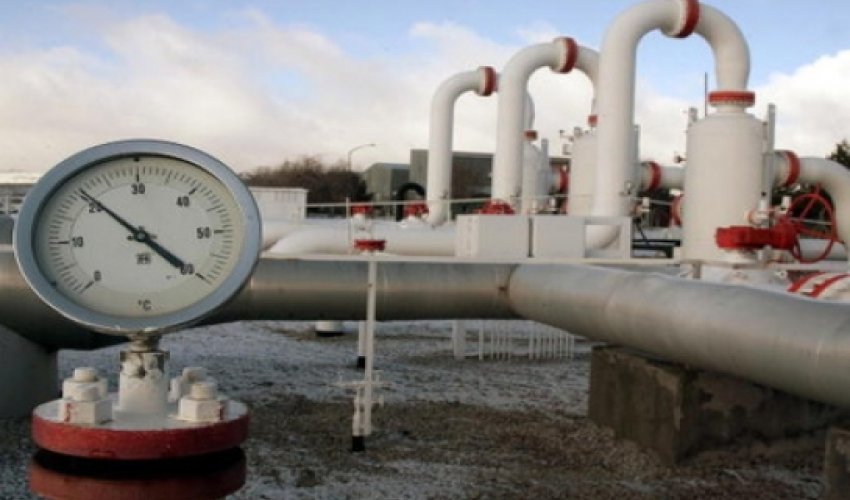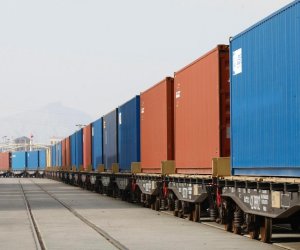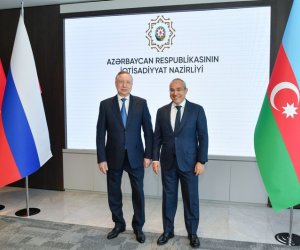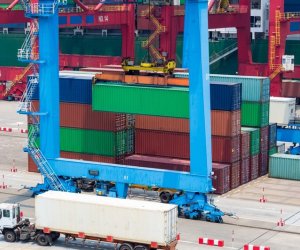Italian gas deals with Azerbaijan to break systemic oil-link

Italy is counting on its new gas contracts with Azerbaijan to wriggle free of traditional oil-linked pricing mechanisms, used by its two biggest suppliers Russia and Algeria, in a bid to bring down energy prices.
Europe's fourth-biggest economy has struggled to win access to market-priced gas supplies, partly due to reluctance by its main suppliers Russia and Algeria to rewrite profitable oil-linked deals, as well as Italy's lack of alternative sources.
But the BP-led Shah Deniz II development vying to grab a share of Europe's gas market by 2019 is taking steps to undercut rival suppliers Russia and Algeria by offering long-term deals tied to prices on domestic spot markets, including Italy's developing PSV hub.
The Azeri project will pump 16 billion cubic metres (bcm) of gas to Turkey and the European Union, where energy companies have contracted to buy 10 bcm.
"The Italian deals are similar to the contract between Qatar and (Belgium's) Distrigas for long-term LNG supplies," one source with knowledge of the matter said.
In that deal, Distrigas, now owned by Italy's ENI, initially paid a price tied to a barrel of crude oil for shipments of Qatari liquefied natural gas (LNG).
As Belgium's Zeebrugge gas hub became a key trading point in Europe and liquidity rose, Qatar converted its pricing structure to one fully linked to local gas prices.
A similar move in Italy would help remove the risk of Italian gas buyers losing billions of euros on oil-linked deals when prices for the two commodities diverge, as has been the case in recent years.
European utilities bound by long-term supply deals from Russia and Algeria tied to oil have lost out in recent years, as the development of regional gas trading hubs meant that consumers bought the gas from utilities at a lower price than these had bought it from the producer.
Top gas buyers such as Italy's ENI and Germany's E.ON lost billions of euros in such oil-linked deals.
To prevent such losses in future, France's GDF Suez , which with 2.6 bcm is the single biggest buyer of Shah Deniz II gas, already secured a 100 percent indexation to prices at freely traded gas hub TTF in the Netherlands, several sources with knowledge of that deal said.
ITALIAN HUB MUST QUALIFY
Other buyers of Azeri gas, like Italy's Enel, Hera Trading, as well as Switzerland's Axpo, who signed deals to buy around 5 bcm per year, will pay a price fully linked to traded gas prices at Italy's PSV hub, two sources with knowledge of the contract between Shah Deniz II and the gas buyers said.
Such an arrangement would mean that Italian buyers would pay a price reflective of supply and demand for gas in their home markets, instead of to globally traded and costlier crude oil.
But in order to qualify for hub-linked prices, Italy's thinly traded PSV hub must first hit certain liquidity targets to demonstrate that it is a viable alternative to oil benchmarks, according to a clause in the contract.
Liquidity in Italy has for years been hampered by a lack of transparency and the dominant market position held by gas incumbent ENI.
"Greater efforts need to be taken to increase traded volumes, especially with Algerian volumes under pressure and Libya in a bad state," said Claudio Gianotti, head at World Energy, a gas and power trading company.
Although still falling short of targets, traded volumes at the PSV hub have seen steady growth this year, and the promise of cheap Azeri supply from 2019 may incentivise firms to become increasingly active at the hub.
Falling short of liquidity targets will see Italian buyers revert to paying a price based on a 20 percent indexation to crude oil, with the remaining 80 percent tied to spot gas prices at the TTF hub in the Netherlands.
Long-term gas deals struck decades ago used to be fully pegged to crude prices, but the development of liquid gas trading hubs has gradually eroded oil's price-setting role.
A virtual gas trading point, the PSV was created in 2003 but a lack of liquidity, competition and pipeline bottlenecks have kept Italian spot prices at a premium to European peers.
Italy's gas market churn rate, which shows how many times gas is traded before it is consumed, rose to three in 2013, compared with 19 in the Netherlands and 23 in Britain. A churn rate of 10 is considered a threshold of a mature market.
It is unclear what precise liquidity targets Shah Deniz II has set in the contract with Italian buyers.
(Reuters)
Bakudaily.az




































 Photo
Photo 



 Video
Video 

